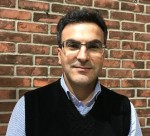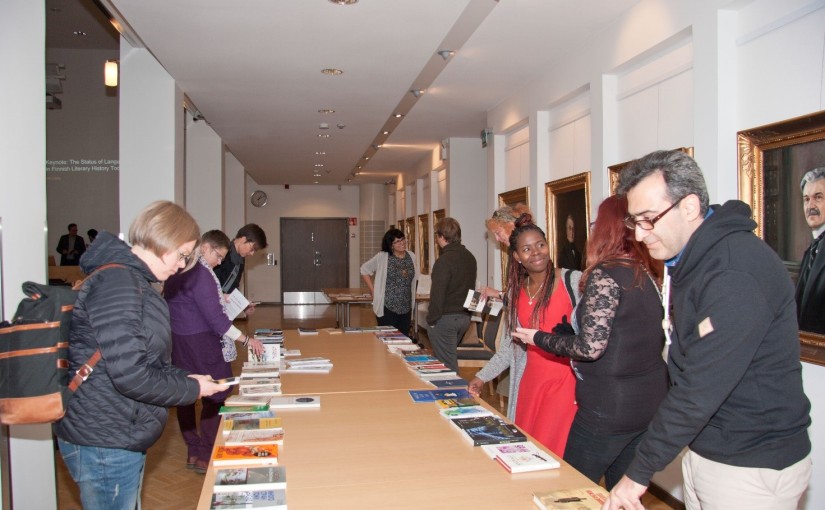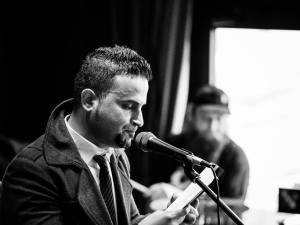Immigration and globalization have broadened the definition of Finnish literature that was traditionally defined as a piece of literature written by a Finn in Finnish in Finland for Finns. As a result of immigration to Finland, some immigrants have produced and continue to produce literary works that deal with Finnish culture, society and history in Finnish or several other languages. In addition to their mother tongues, a great number of immigrant authors master different languages and employ them simultaneously in their works. The existence of such works in Finland and their coexistence with Finnish literature have both challenged the traditional definition of Finnish literature and have generated multilingual and polyphonic literature.
The project [on multilingual Finnish literature]…aims to increase the visibility, readability and research on literary works written by immigrant authors in Finland, writing in the dominant or non-dominant languages but know themselves affiliated with Finnish culture, history and society.
At the Finnish Literature Society (Suomalaisen Kirjallisuuden Seura, SKS, https://www.finlit.fi/en), wherein work is based on an up-to-date knowledge and understanding of the roots of the culture, as well as the contemporary profile of a multicultural and multilingual Finnish literature, we are conducting a project, entitled “Toward a More Inclusive Finnish Literature,” on multilingual Finnish literature. The project, which has started in January 2018, aims to increase the visibility, readability and research on literary works written by immigrant authors in Finland, writing in the dominant or non-dominant languages but know themselves affiliated with Finnish culture, history and society.
The database [on immigrant authors residing in Finland]…will include the information of seventy immigrant authors, such as their updated biographies, list of publications and photos of many of these authors, as well as the views and interviews of some of them.
Since there did not exist any database on immigrant authors residing in Finland, we have spent some time to build the database, which will include the information of seventy immigrant authors, such as their updated biographies, list of publications and photos of many of these authors, as well as the views and interviews of some of them. The database is updated on regular basis as the project proceeds. Right after that, we selected a number of immigrant authors based on their professionality (quality of their published works), activity (quantity of their works) and diversity of nationality for the first round of interviews. We contacted them one at a time, asked those who were interested to send some of their published works to us, and after reading them, we had an in-depth and technical interview rather than a general one. Up to this date, fifteen authors have been interviewed, and the other selected ones will be contacted and interviewed hereafter.
The seminar also familiarized immigrant authors with the activities of the SKS and our co-organizers with a focus on their supportive missions for immigrant authors.
At the SKS, we also organized a one-day literary seminar – entitled “Today’s Literature, Tomorrow’s Literary History: Do Immigrant Authors Transform Finnish Literature?” – in October 2018 in the main building of the SKS. The seminar, which was co-organized by some organizations, including Culture for All and Globe Art Point, gathered a number immigrant authors as well as scholars, researchers and anyone interested in the literature produced by immigrants in Finland. The seminar also familiarized immigrant authors with the activities of the SKS and our co-organizers with a focus on their supportive missions for immigrant authors. In addition, it provided the grounds for us to be acquainted with the potentials of authors and see how we can work together to find a way toward increasing their visibility and readability.
The anthology [entitled ‘Toward a More Inclusive Finnish Literature’] will include some of the unpublished literary works in different genres by about thirty immigrant authors in about twelve different languages, and this would make the anthology the most inclusive, collective and comprehensive one ever published on immigrant authors in Finland.
We have also planned to publish a multilingual anthology, entitled Toward a More Inclusive Finnish Literature, in 2019. The anthology will include some of the unpublished literary works in different genres by about thirty immigrant authors in about twelve different languages, and this would make the anthology the most inclusive, collective and comprehensive one ever published on immigrant authors in Finland. The publication of this multilingual anthology manifests some aspects of multilingualism and polyphony that exist in Finland, introduces some of the immigrant authors residing and writing here, as well as provides an opportunity for their works to be seen, read and heard.
***
 Mehdi Ghasemi received his PhD in English Literature from the University of Turku, and now he is a postdoctoral researcher at the Finnish Literature Society, the University of Tampere and the University of Turku. He has already published five scholarly books and thirteen papers in peer-reviewed scholarly journals with three more papers in the pipeline. He is also a fiction writer, writing his works in the hybrid genre of noveramatry (a combination of novel, drama and poetry all in one line). He has already published three fiction books, including Flight to Finland: A Noveramatry, How I Became a W Finn: A Noveramatry and Finnish Russian Border Blurred: A Noveramatry, with the fourth forthcoming one, A Farewell to the Earth and Kepler-438b.
Mehdi Ghasemi received his PhD in English Literature from the University of Turku, and now he is a postdoctoral researcher at the Finnish Literature Society, the University of Tampere and the University of Turku. He has already published five scholarly books and thirteen papers in peer-reviewed scholarly journals with three more papers in the pipeline. He is also a fiction writer, writing his works in the hybrid genre of noveramatry (a combination of novel, drama and poetry all in one line). He has already published three fiction books, including Flight to Finland: A Noveramatry, How I Became a W Finn: A Noveramatry and Finnish Russian Border Blurred: A Noveramatry, with the fourth forthcoming one, A Farewell to the Earth and Kepler-438b.


 Ahmed Zaidan is a poet and journalist from Mosul, Iraq. Arrived to Finland in 2013, recognized as a political refugee. Graduate of University of Mosul, Translation Studies. A winner of the prize of Creative Writings of Mosul University for twice. Author of “Aurora from Mosul” a poetry collection written in English, published in Germany 2018.
Ahmed Zaidan is a poet and journalist from Mosul, Iraq. Arrived to Finland in 2013, recognized as a political refugee. Graduate of University of Mosul, Translation Studies. A winner of the prize of Creative Writings of Mosul University for twice. Author of “Aurora from Mosul” a poetry collection written in English, published in Germany 2018.

 Anisur Rahman is Uppsala’s guest writer 2009–2011 in the ICORN system and currently project leader for Litteraturcentrum Uppsala, Studiefräjandet Uppsalaregion,
Anisur Rahman is Uppsala’s guest writer 2009–2011 in the ICORN system and currently project leader for Litteraturcentrum Uppsala, Studiefräjandet Uppsalaregion, 

